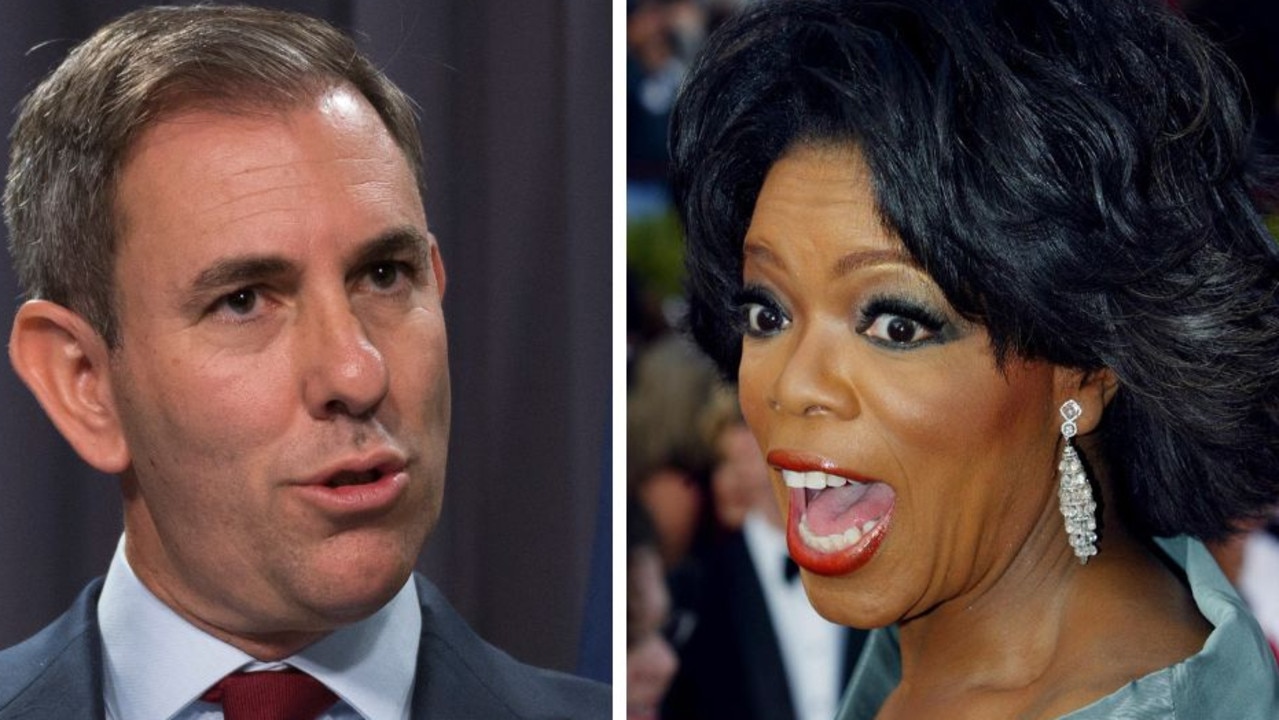All Australian households will receive cost of living relief in Tuesday’s federal budget, as Treasurer Jim Chalmers promises to strengthen the economy with the bold Future Made in Australia plan.
In his own personal Oprah moment, the treasurer has delivered a tax cut for every Australian, a boost in welfare for about a million renters, and a $300 energy rebate for every household.
The 2024-25 budget will deliver a $3.9bn surplus, the second in row – but Treasury forecasts show it will be the last for some time as the economy dives into the red from next year.
The Treasurer delivered his budget to a packed parliament and watched by his wife Laura and two of his three children, Leo and Annabel.
Youngest son Jack was at home in Queensland with his nan.
But Dr Chalmers says Australia is well placed to weather the storm, and Tuesday’s budget will help future-proof the economy in the decades to come
“Just as every Australian taxpayer will get a tax cut, every Australian household will get energy price relief,” Dr Chalmers said in his budget speech on Tuesday night.
“From July 1, Australians will receive an energy rebate of $300 – and one million small businesses will get a bit more.”
Dr Chalmers said the budget was also delivering help more broadly, including by freezing the cost of medicines, supporting low-income renters, making student loans fairer and helping pensioners by freezing the deeming rate.
The government’s revamped stage 3 tax cuts will deliver an average benefit of $1888 a year – $36 a week – from July 1 for all 13.6 million taxpayers.
“For 84 per cent of taxpayers, and 90 per cent of women, (that’s) a bigger tax cut than they would have under the previous government,” Dr Chalmers said.
The 2024-25 budget also forecasts inflation to hit the target 2-3 per cent by Christmas, down from 3.45 per cent now.
That’s much faster than the Reserve Bank’s expectations released last week, which did not take in the budget measures.
It also raises hopes of an interest rate cut before the next federal election, due by next May.
But Dr Chalmers flagged the Australian economy will face pressures, with growth slowing in China and tepid in Europe, tensions continuing in the Middle East and Ukraine, and global supply chains fragmenting.
“The world economy is resilient in parts but subdued overall,” he said.
“This uncertainty combines with cost of living pressures and higher interest rates to slow our economy.”
He said growth was forecast to be just 1.75 per cent this financial year and 2 per cent in the next, with unemployment expected to rise slightly to 4.5 per cent next year “even as we create tens of thousands of new jobs”.
“I want Australians to know that despite everything coming at us, we are among the best placed economies to manage these uncertainties and maximise our opportunities,” he said.
He said the government’s recently announced Future Made in Australia Act would change manufacturing in Australia and take advantage of the global commitment to net zero by 2050.
“This will demand the biggest transformation in the global economy since the industrial revolution,” Dr Chalmers said.
“Our $22.7bn Future Made in Australia package will help make us an indispensable part of the global economy.”
He said the Future Made in Australia package, which has been criticised as protectionist for providing huge amounts of government support, is necessary.
“The world is changing, the pace of that change is accelerating, and our approach to growth and investment needs to change as well,” he said.
“If we hang back, the chance for a new generation of jobs and prosperity will pass us by and we’ll be poorer and more vulnerable as a consequence.
“In our future, we must strive for more than muddling through or making do.
“This budget shows we are realistic about the pressures people face now – and optimistic about the future.”
